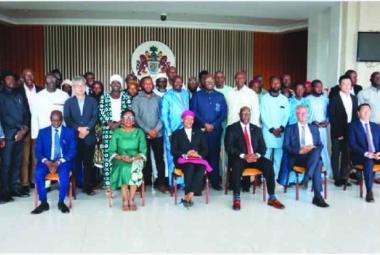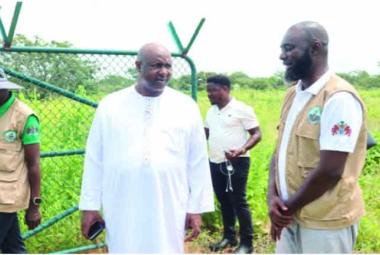By Fatou B. Cham
Authorities at the Central Projects Coordinating Unit (CPCU) of the Ministry of Agriculture said they have successfully negotiated with the Islamic Development Bank (IsDB) for the extension of the ‘Building Resilience to Recurring Food Insecurity Project in The Gambia’ , which implementation has suffered a long delay. The project aims to enable the beneficiaries to resist the shock of acute food, respond effectively, and adapt sustainably to climate change by the development of stock breeding, irrigation schemes, and regional markets for agricultural and livestock inputs and products. Authorities have explained to Gambia Daily the causes of the protracted delay of the project since it was initially launched in 2015
This initiative was under IFAD-funded National Agricultural Land and Water Management Development (Nema) project when it was launched in 2015, and the activities were stopped by the former government for almost two years.
In 2018 work on the project resumed but implementation had stalled again thanks to the outbreak of COVID-19 pandemic and many others. The attendant disruption of the implementation schedules due to imposed restrictions on the movement of people, and inevitable failure of contract obligations during peak of COVI-19, coupled with the ill-health and ultimate demise of the former Project Director in August 2020, has created a vacuum in the overall implementation and management of the project.
This problem, according to the project authorities, was further compounded by the deteriorating health condition of the Acting Project Director, resulting to poor communication between the project and the Bank, and thereby affecting fund reimbursement for timely payment to contractors of the ongoing civil works.
It was also pointed out that among the causes of the delay were poor and inadequate design and weak supervision and monitoring of contracts by the supervising engineer.
Staff attrition was another complication the project had to deal with. As the co-financier, IsDB had to stop the former remuneration structure of the project and based it on allowance. This led to the unfortunate resignation of key staff in the project.
Notwithstanding, the senior management and the Project Intervention Unit said, having successfully negotiated with the Bank for an extension of the Project, they have now finalised the review of all the designs and the contractors have been re-engaged to complete all remaining works this year.






